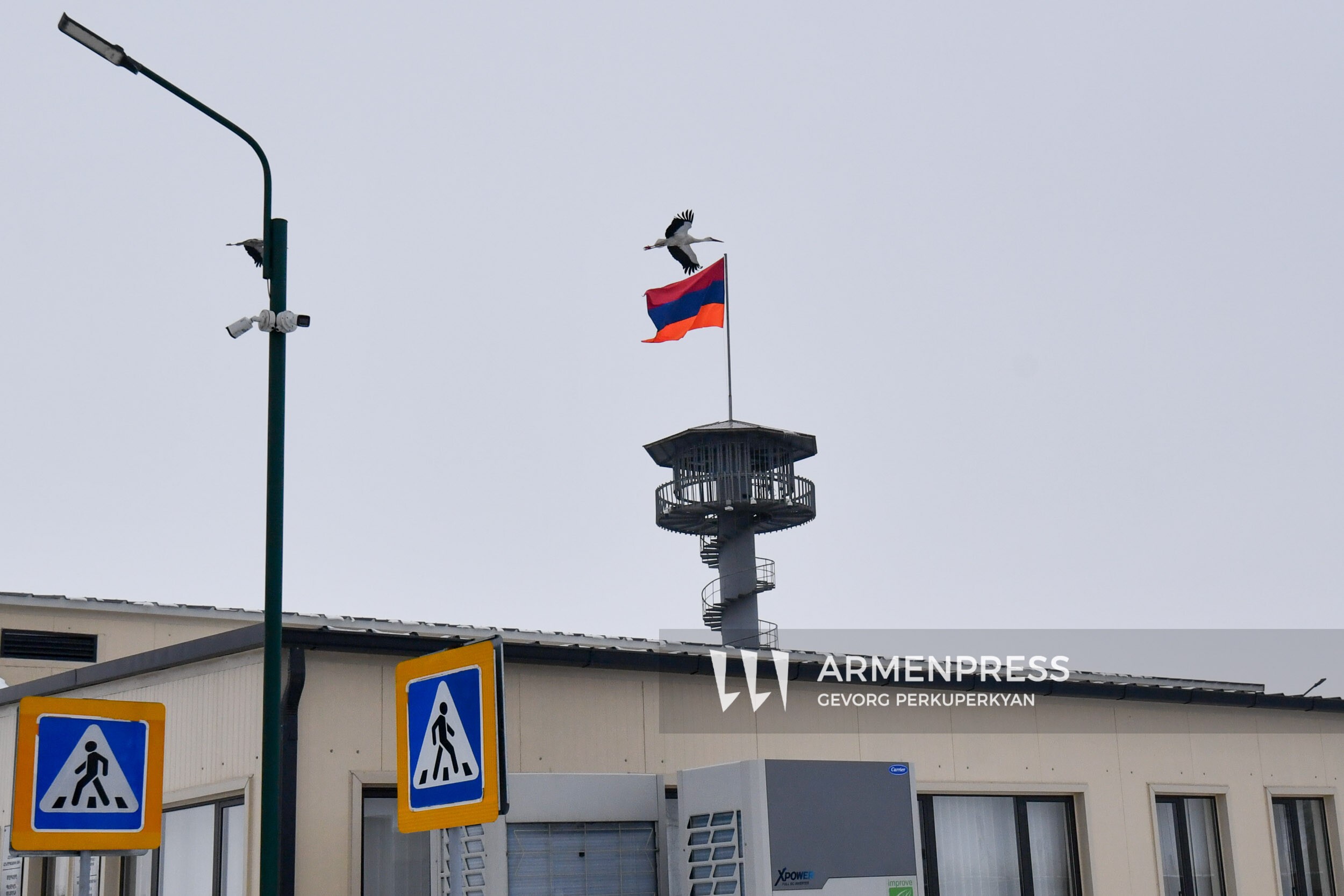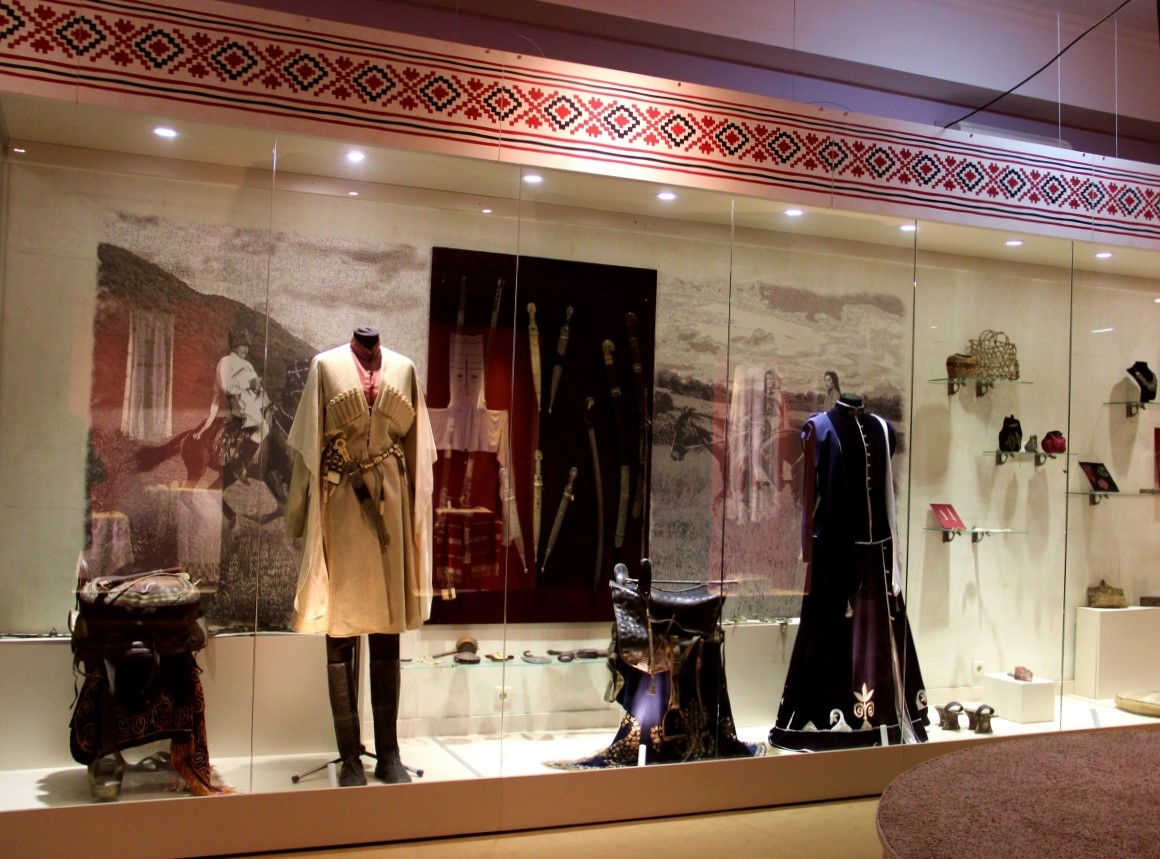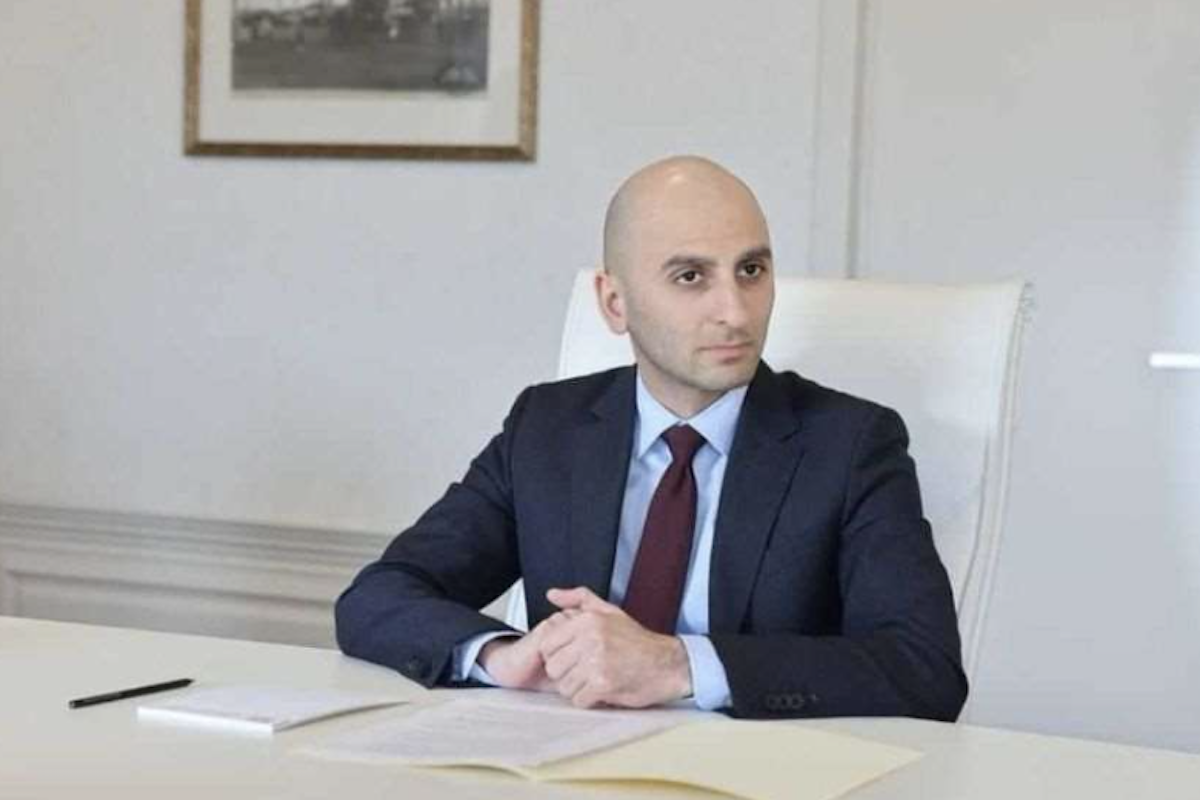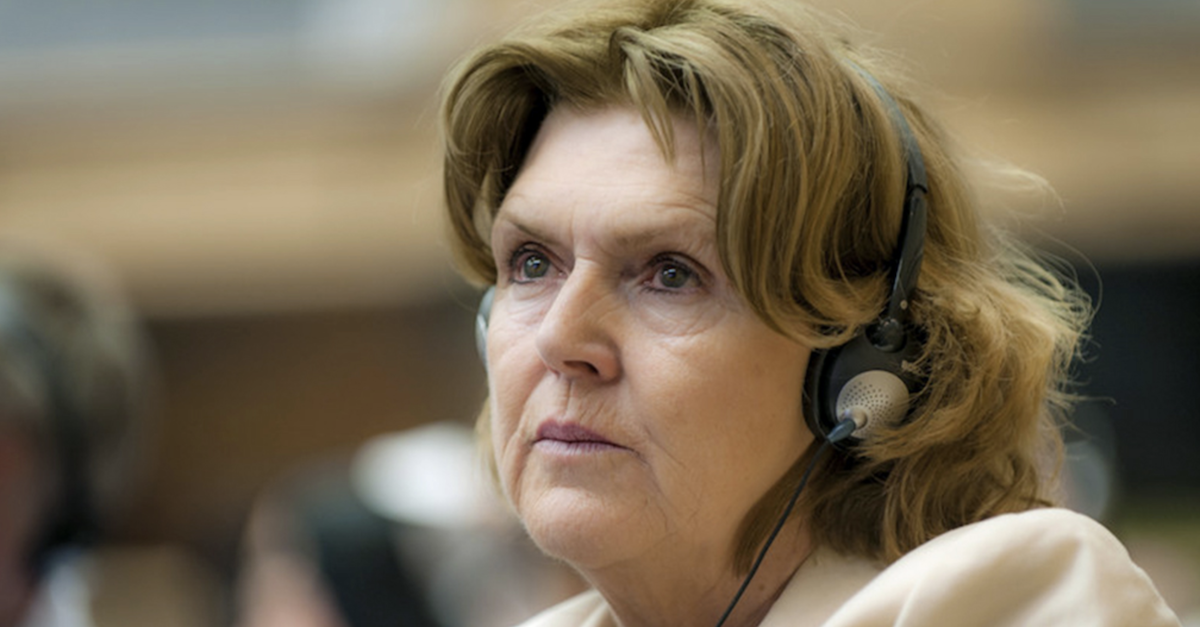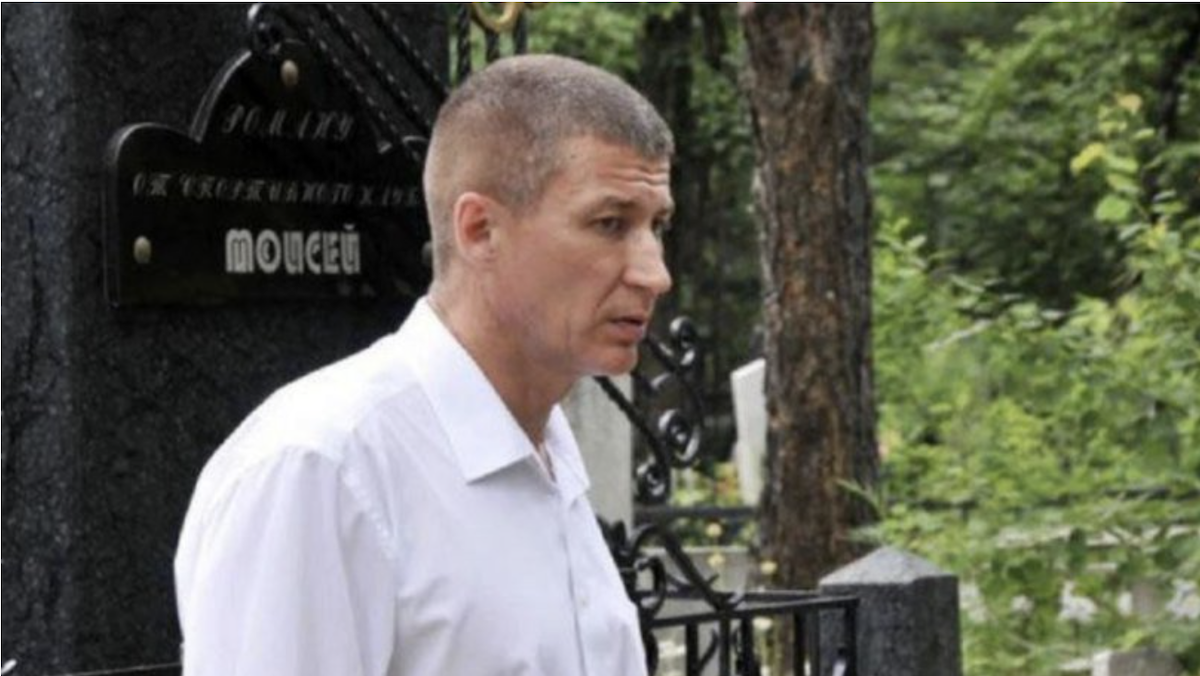"I wanted to do something" - four stories on women farmers
At a glance they do not have anything in common; however, all four of them started telling their story with these words: “I wanted to do something.”
Natalia and Irina come from Tbilisi, Manana – from Tsalka and Dali – from Upper Alvani. Natalia grows cucumbers, Irina does tomatos, Manana runs a tea processing enterprise and a tea shop and Dali combines doing honey production with educational courses.
At Frontline Club in Tbilisi on 28 March, Oxfam Georgia brought together four female farmers to share their success stories with the wider audience.
Story One: Nata

It’s quite a small, cosy space. Wooden shelves show bundles of herbs in a variety of colours.
“Can I have one ‘Alia and Nino’ please?” I said loudly. Within two minutes, I was looking at a clay cup bursting with an alluring combination of black tea, cardamom, cocoa, roasted almond, cocoa sugar, anise and pepper flavours.
The small teahouse on Igorokva Street in Tbilisi offers 12 tea varieties with nine different combinations. Each is gorgeous and unique – Eastern Wonder, Tsia Naina, Ali and Nino, Patron Star: sedative, energizing, antiseptic, anti-stress, calming mint, lime tree, sage, orange and pomegranate flowers, Saperavi grape leaves, rose, ginger, blackberry, raspberry – all these herbs grow in Natalia Partskhaladze’s enterprise called Kona.
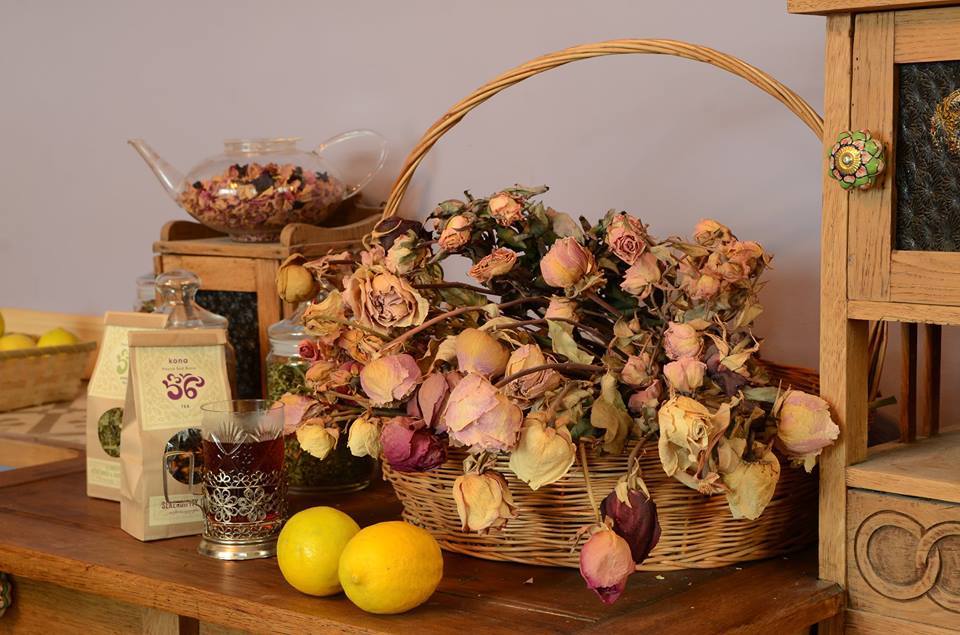
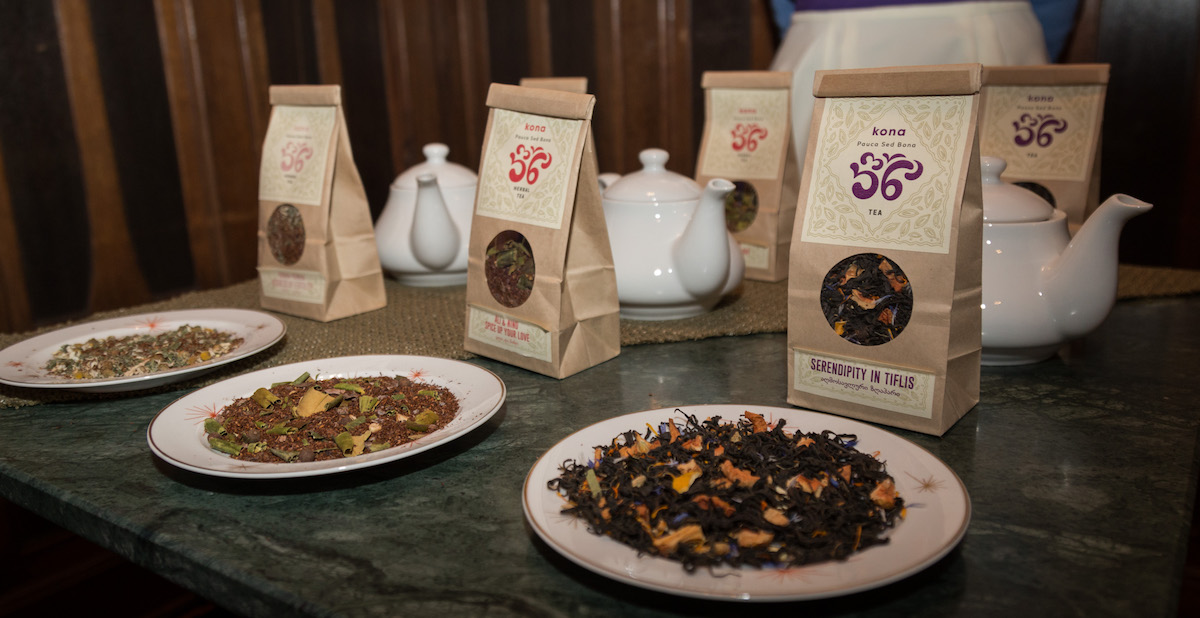
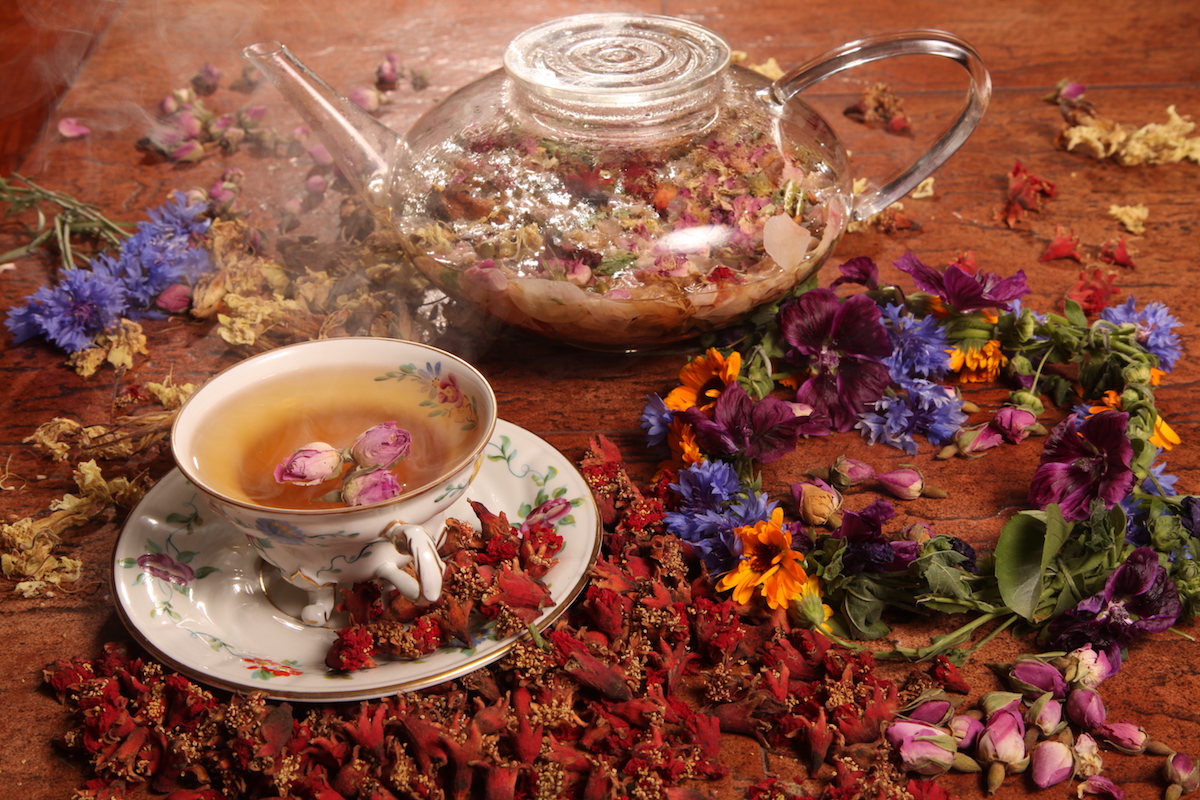
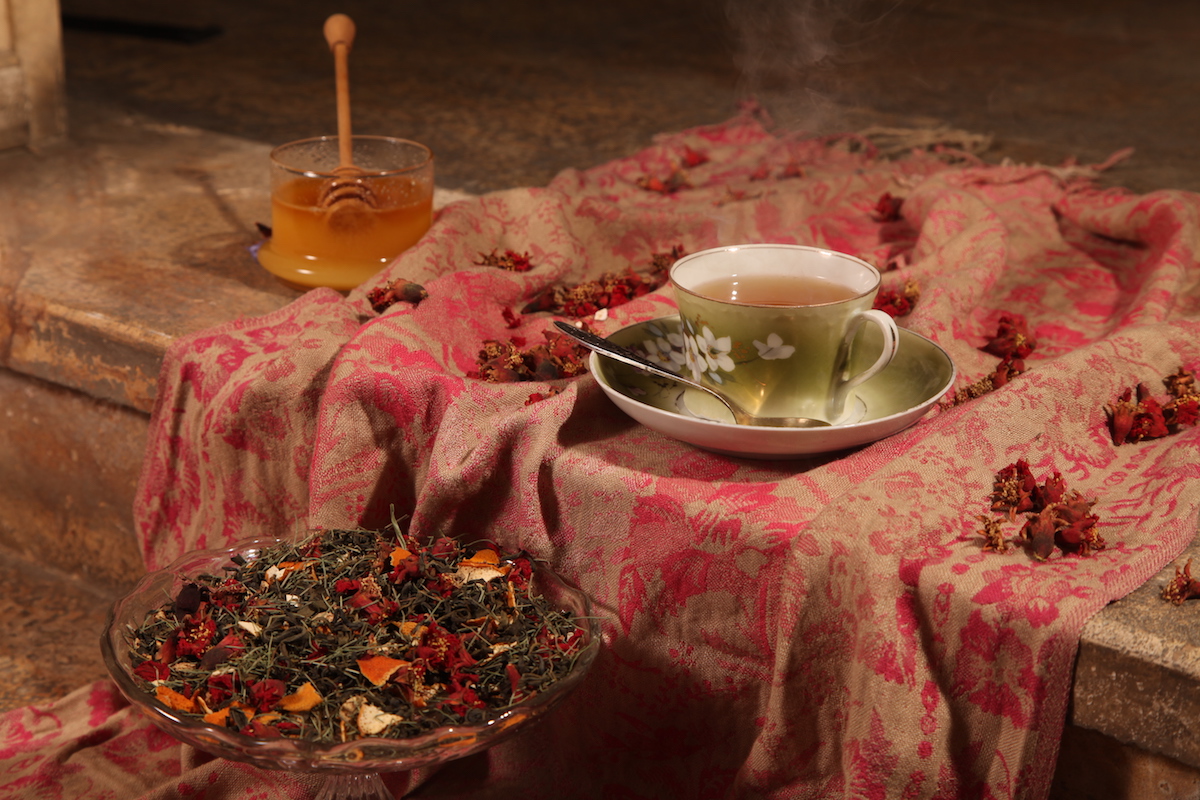
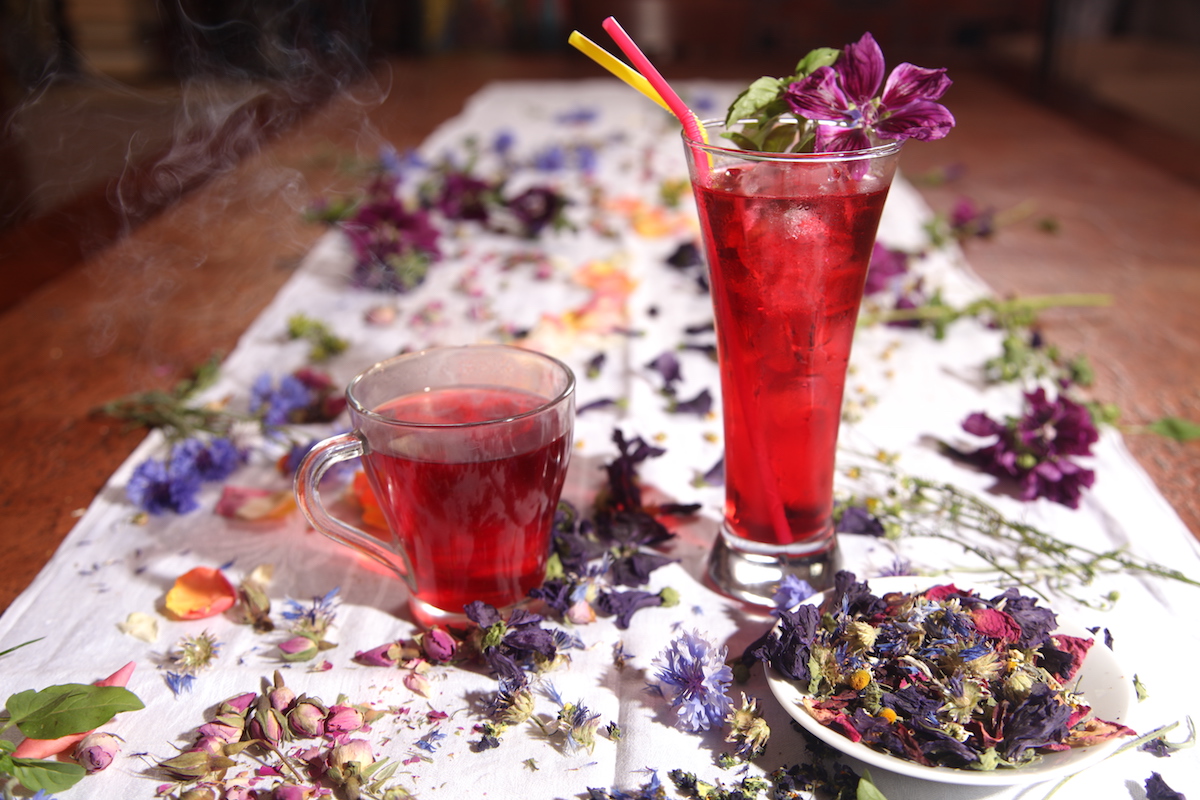
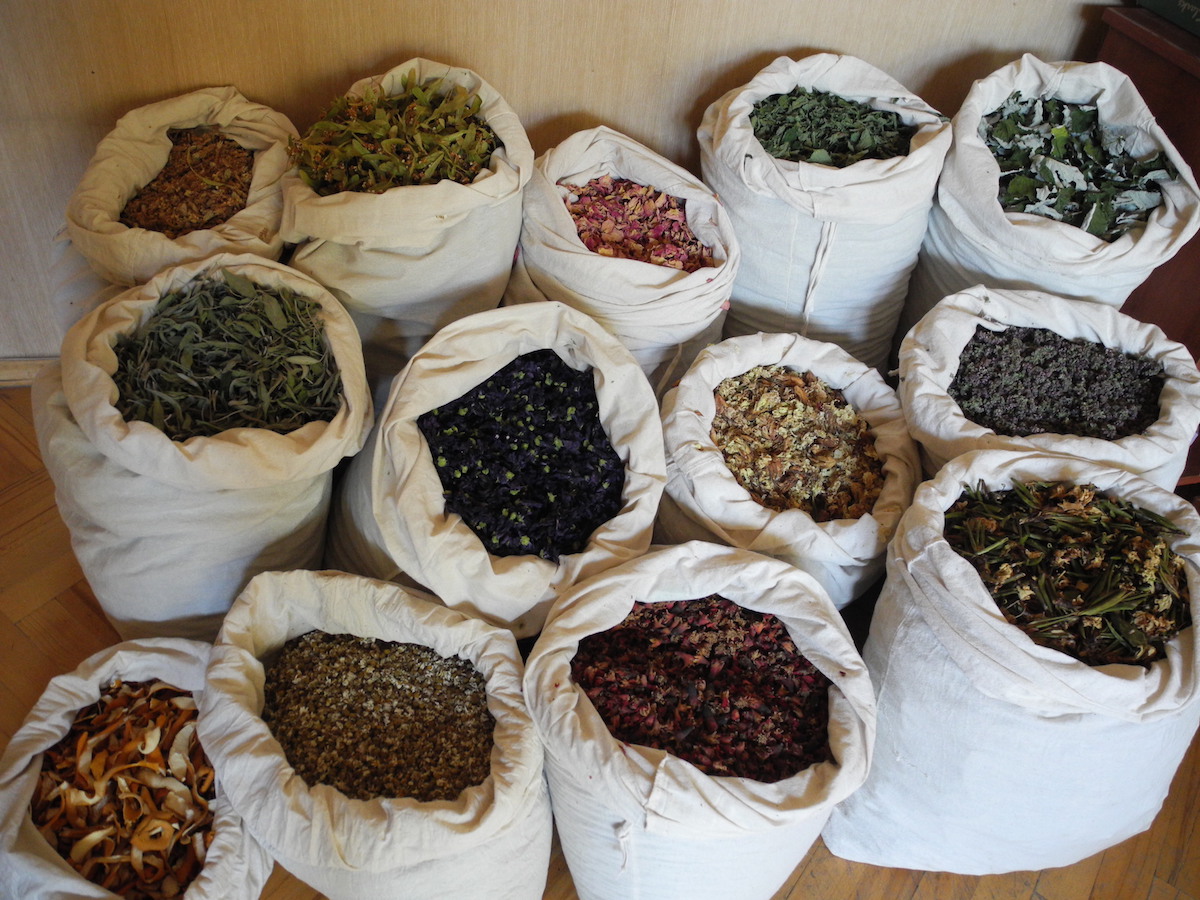
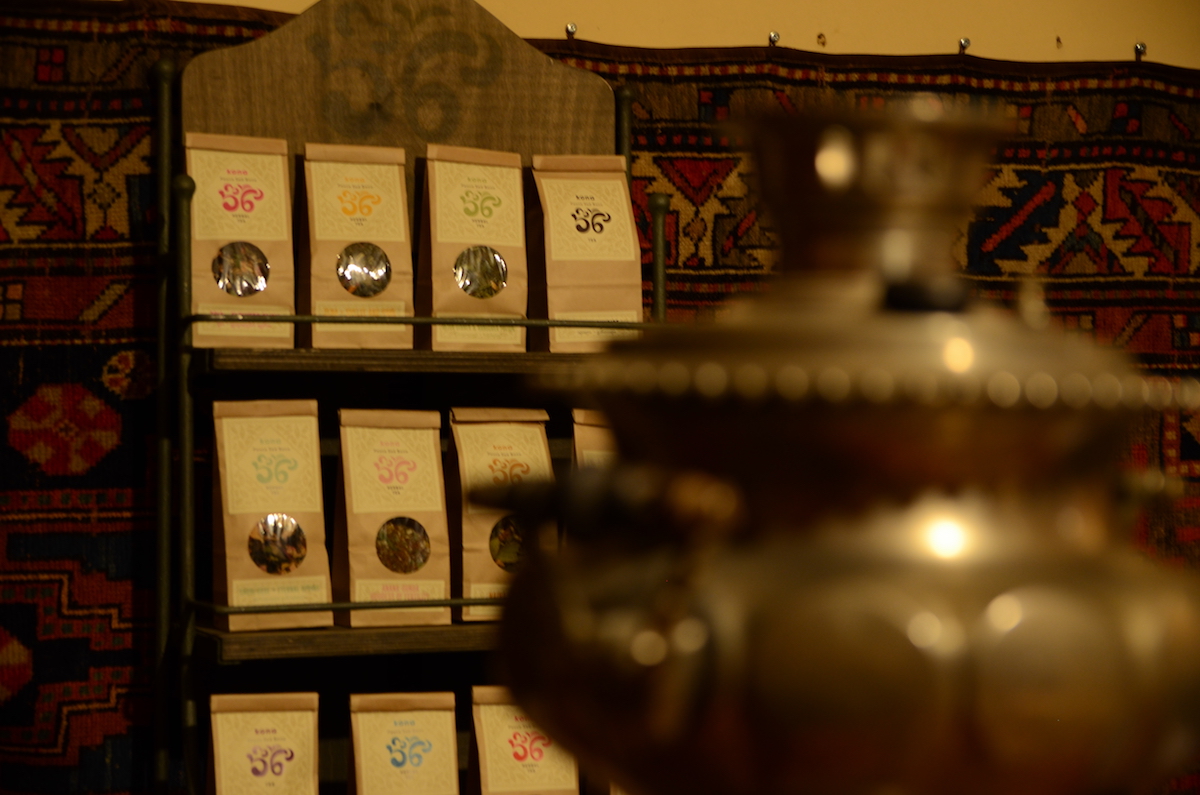
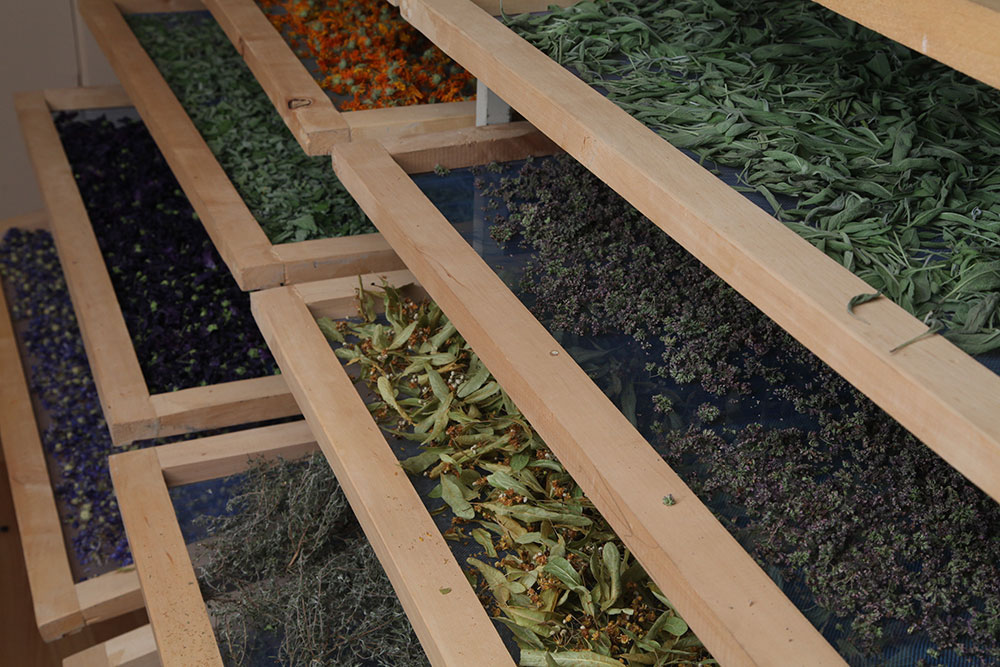
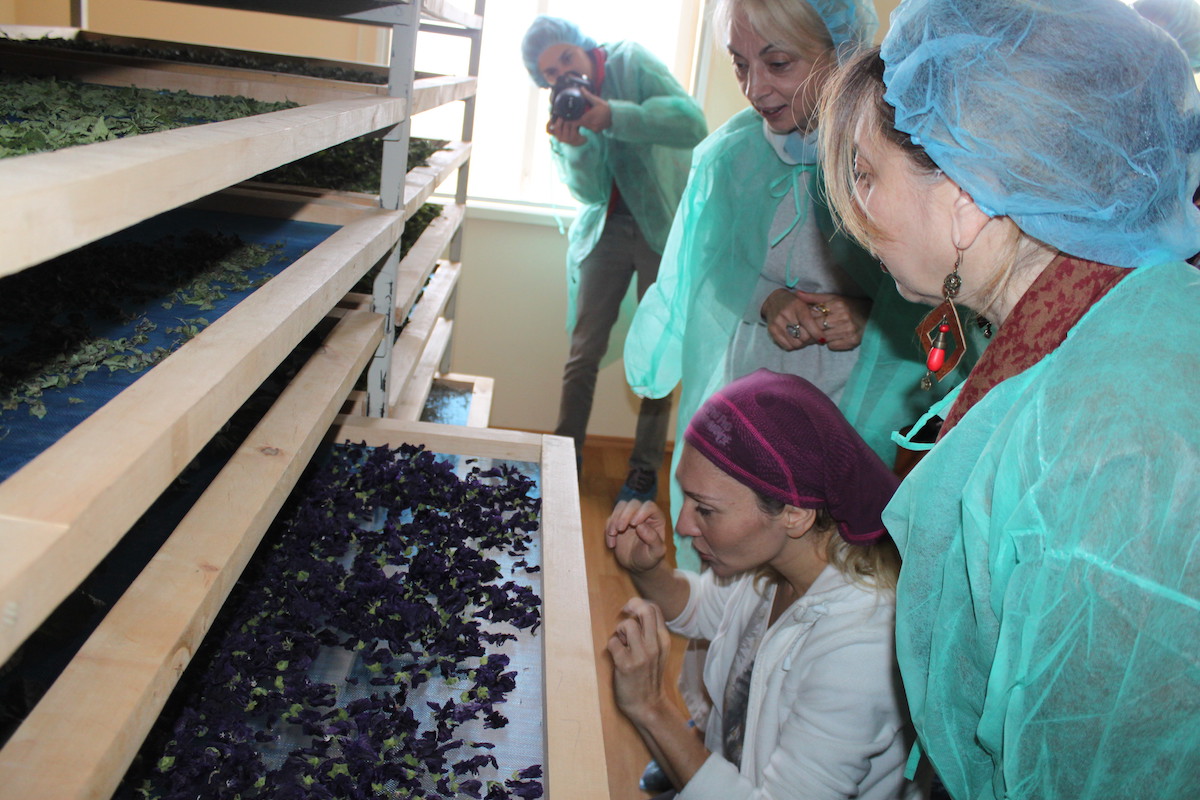
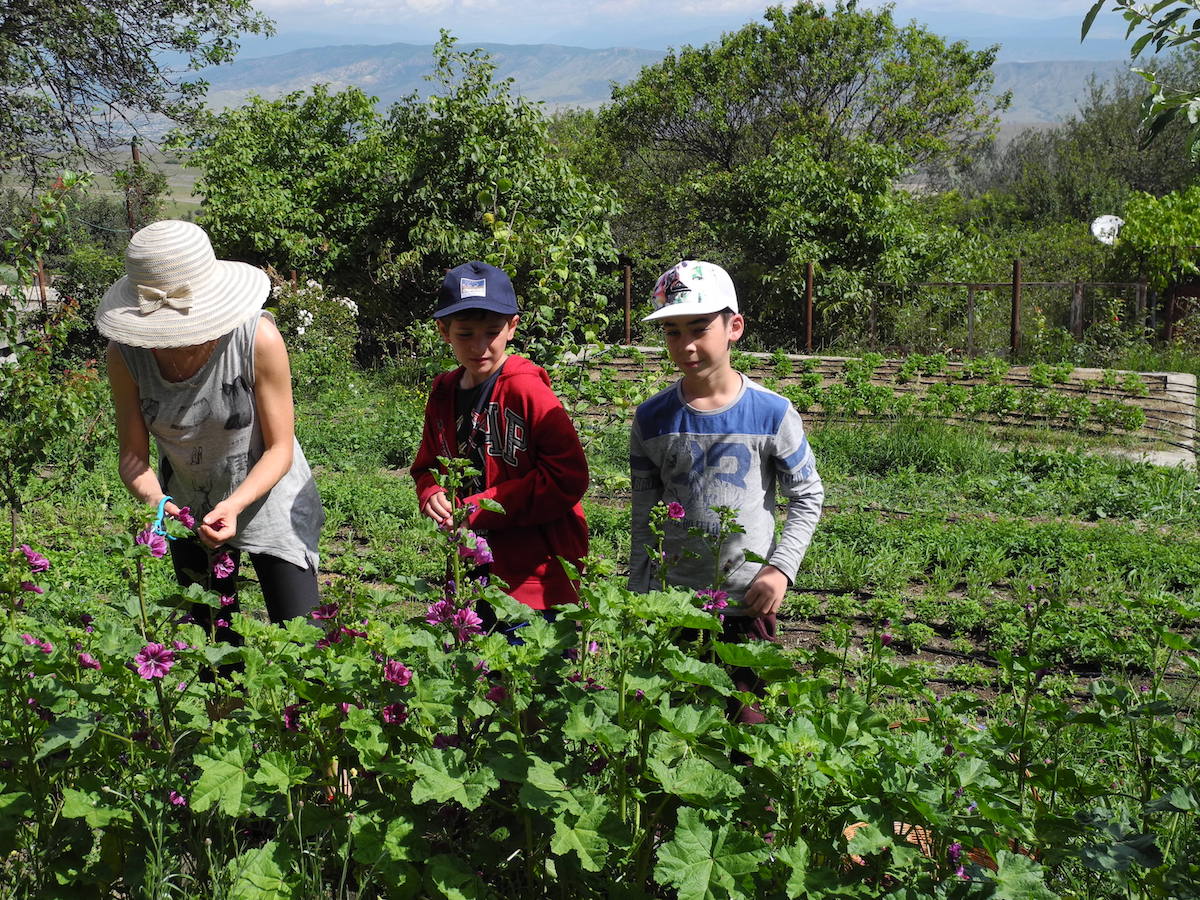

“It all started with my strong desire to do something, something that would say on its tag “made in Georgia” and I would enjoy doing it a lot. I wanted to become financially and morally independent. I needed it badly.”
“I applied for a loan to a bank but my application was turned down. Then I learned about Enpard (European Neighborhood Program for Agriculture and Rural Development which launched in 2013 – JamNews). The program was accepting grant applications. A herb enterprise had been in my mind for years. So, I started putting my thoughts on paper and here you go – I submitted the proposal!”
“In a few months my father’s old house in the village of Lavriskhevi turned into a herbal tea enterprise. With funding from Enpard, I built a garden with a drip irrigation system and launched my small enterprise called Kona.”
“I could not distinguish coriander from parsley before”
“Besides the funding, Oxfam shared knowledge and skills with us through various trainings, which was equally important (Oxfam is an aid and development charity working to end the injustices that cause poverty, supports small-holding farmers in Georgia among other programming – JAMnews).”
“We reaped our first harvest in spring 2016 and today we are running a tea enterprise, a small shop and a café with online sales and a cooperative which employs five people.”
“I am fourty-one years old. I have three sons and Kona has become a lesson for my children. We chose names for teas together, I would consult with them about tastes, would collect flowers together. Success does not happen somewhere out there with super heroes, but it happens here with you: you are creating the process.”
Story two: Manana
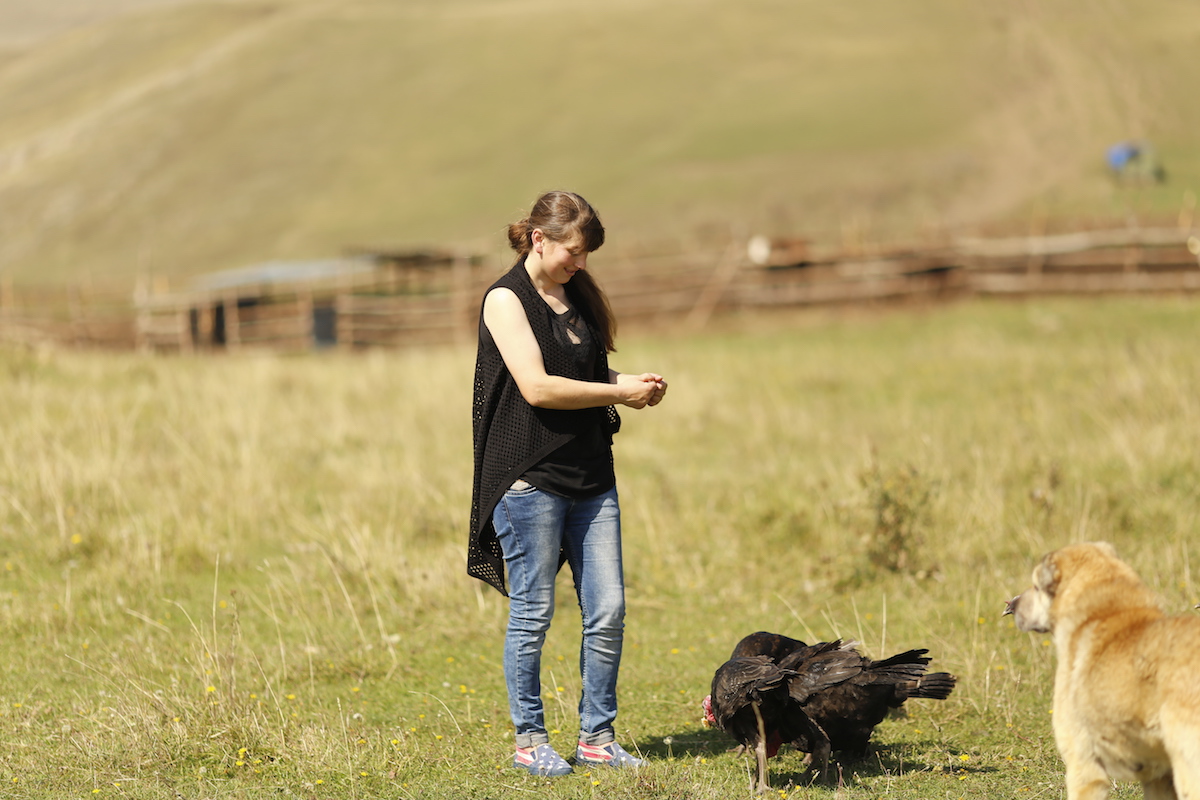
Manana Bolkvadze, 30, comes from Tsalka. Three years ago she had three beehives and today she has 300. Here is her story:
“I live in Tsalka. I am a Geography teacher [at school], so we lived from the hand to the mouth. For three years every summer we would take the village’s herd up to the mountains and move there with the family. We lived in a camp and herded the livestock to produce some milk and cheese. That was hard work, especially as my children were little.
One day in summer a car carrying bees pulled over near our camp. Somebody apparently transported the hives to an ecologically clean environment. I did not pay attention to them at the beginning, but then I became interested and started watching them. Then the newcomers offered to teach me how to take care for the beehives.
After I milked the cows and made cheese, took care of the camp and fed my children, I would rush to the beehives. You know what it feels like when you are breeding your bee family by hand? I volunteered for three years, and would take care of the beehives in the mountain. They gave me two bee families as a present and soon I bred the third family on my own.
Our village is 12 km away from our camp. One day my neighbour told me that there would be a meeting related to grants and cooperatives there and I was interested. I mounted my horse and went down to the village.
I purchased empty beehives with the first grant. Others in my village would frown upon and ridicule me saying beekeeping is not a woman’s business, and that I had only empty beehives. We were three women in the cooperative I launched at the beginning. Little by little I learned about other projects and started fundraising and expanding our business. Today we are 19 women working in the cooperative, some come from Tsalka, some from Adjara, Marneuli and some others from Zestaponi.
Currently, we are going to send a young member to a training course in China and I will be travelling to the US to learn internal corporate relations.
Today we have 300 bee families.That would seem unimaginable a year ago.
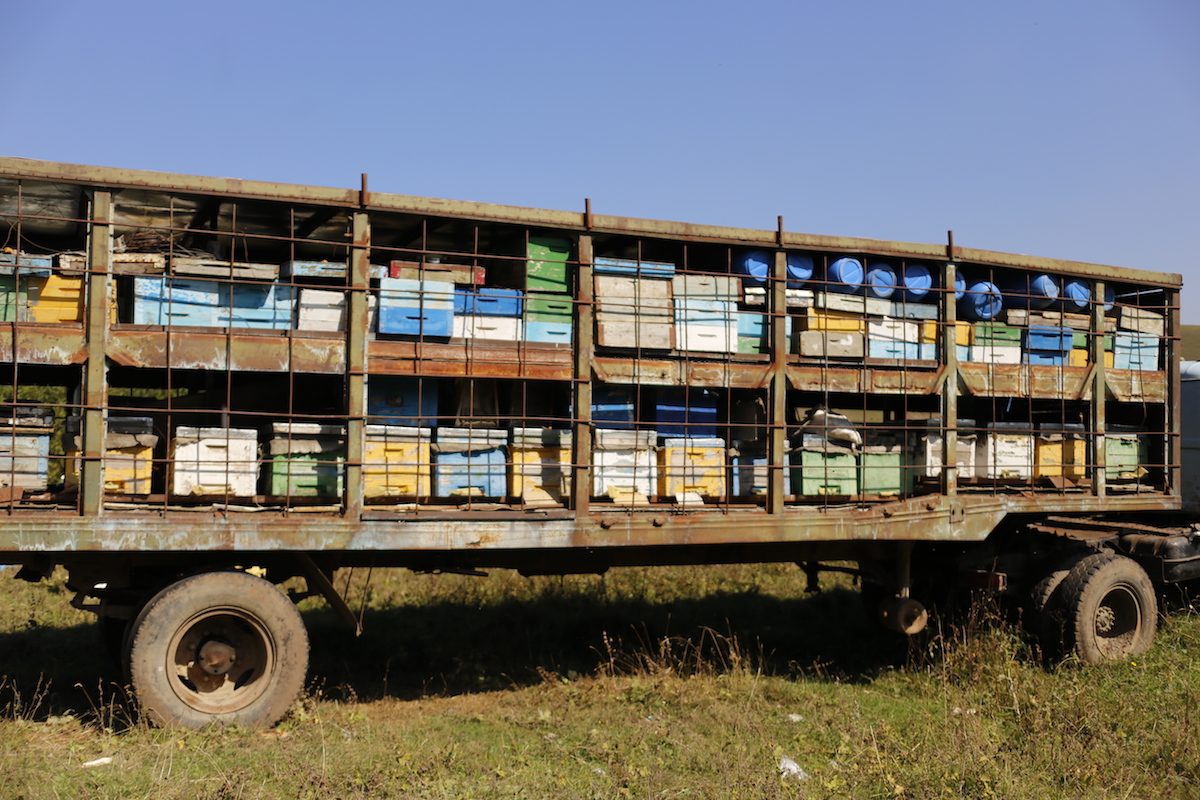
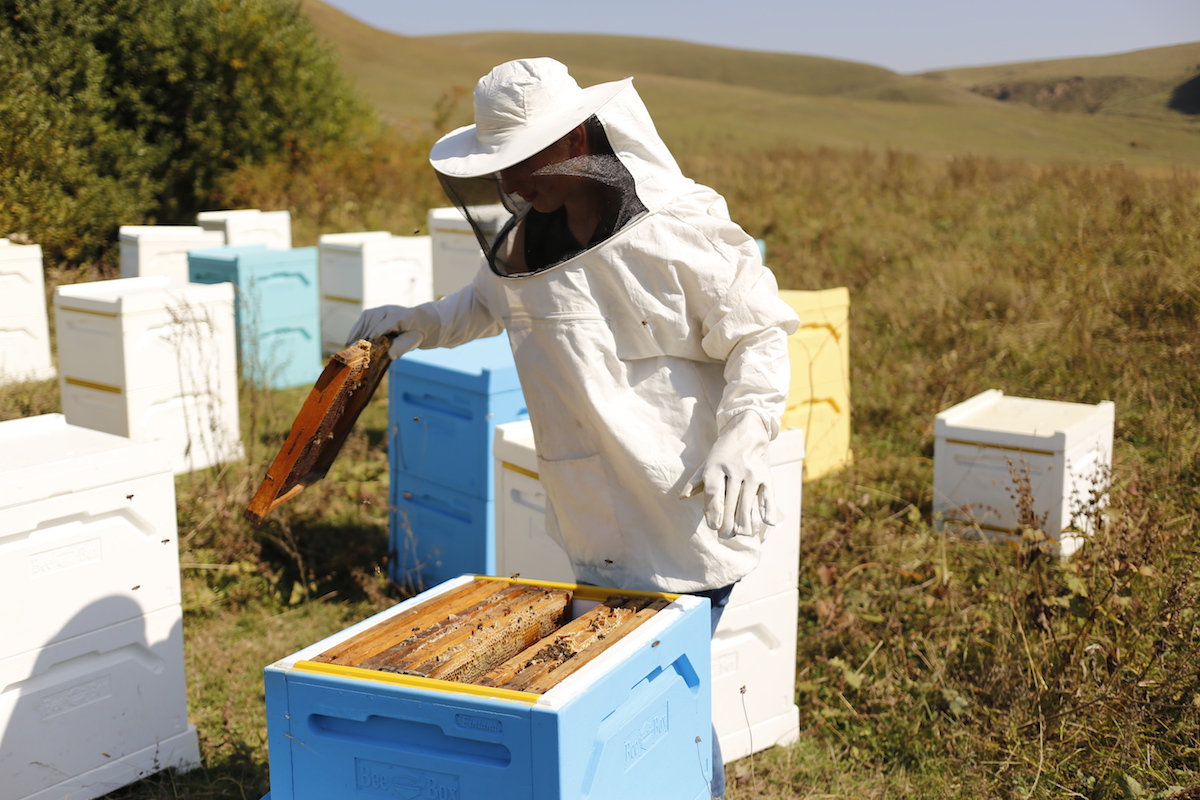
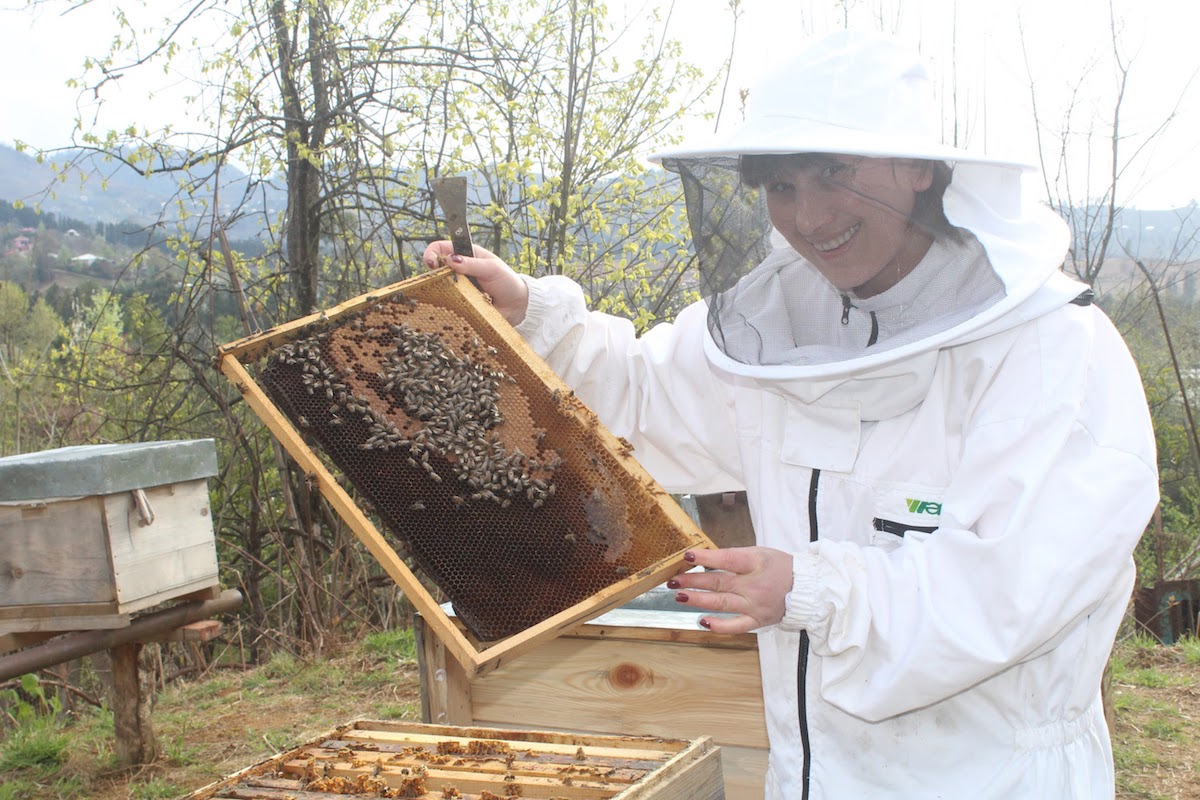
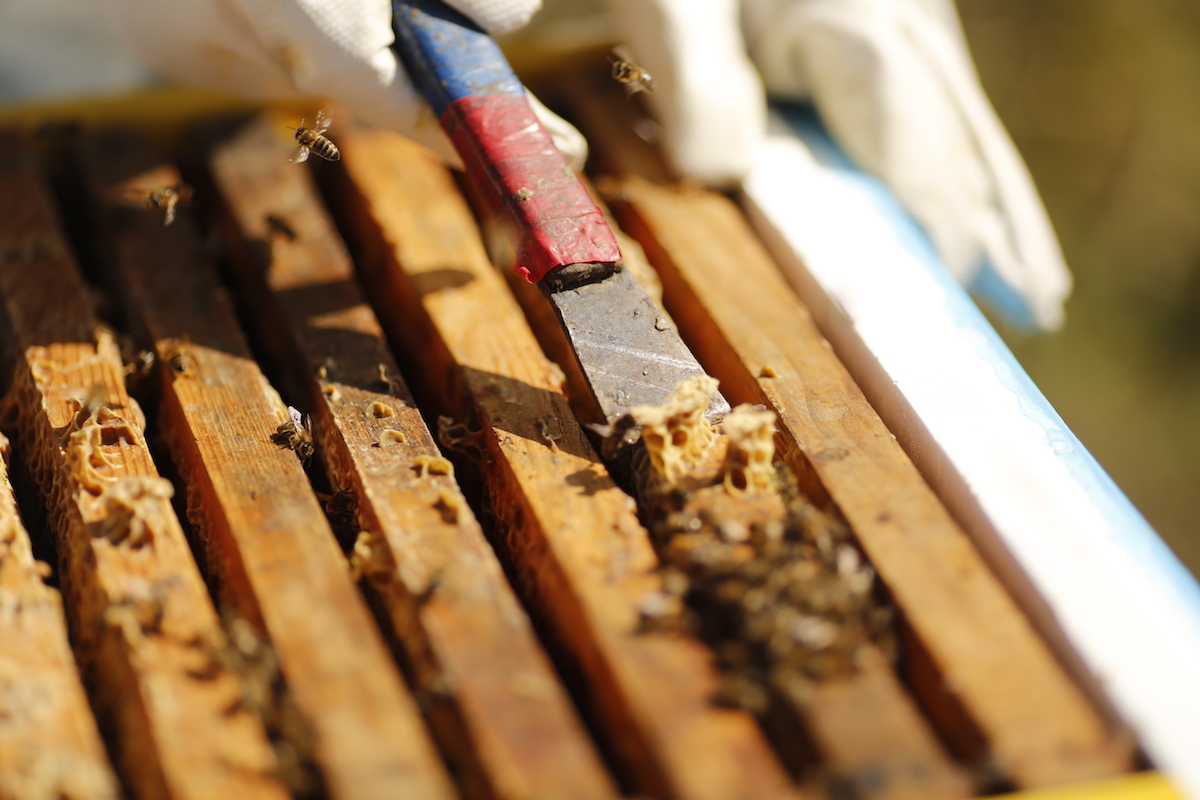
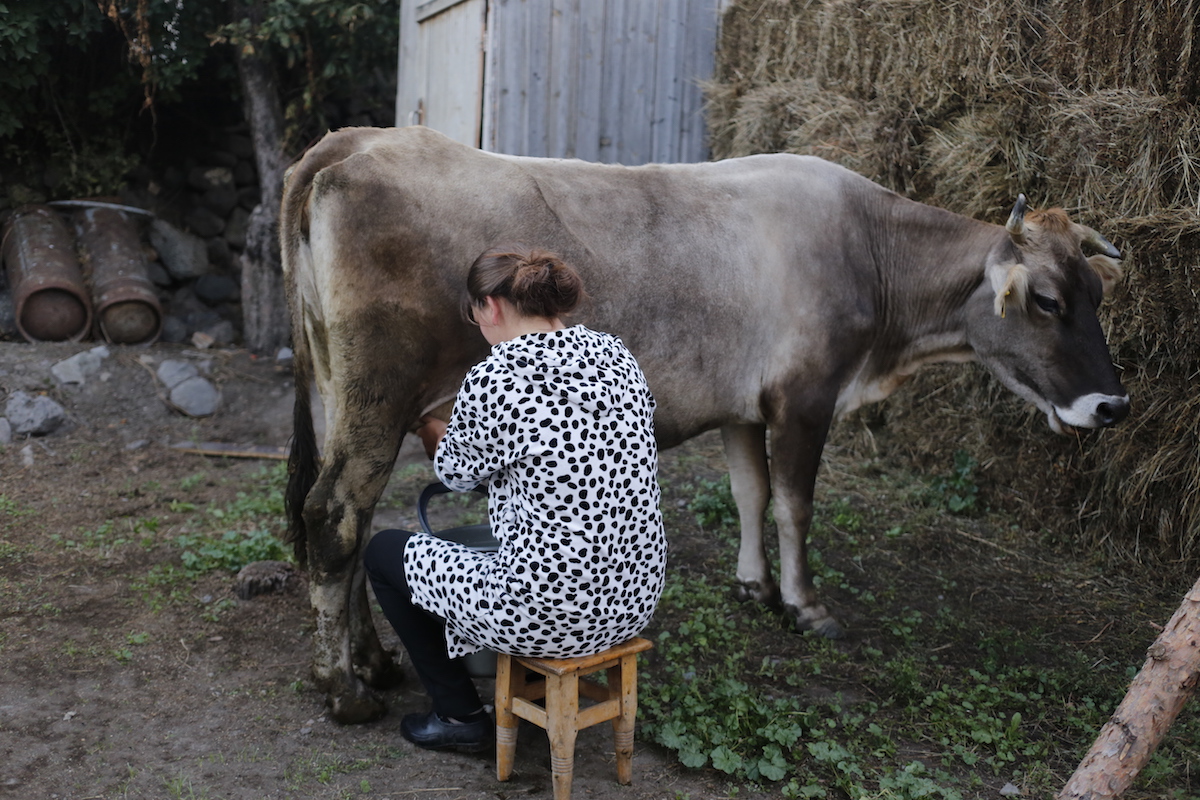
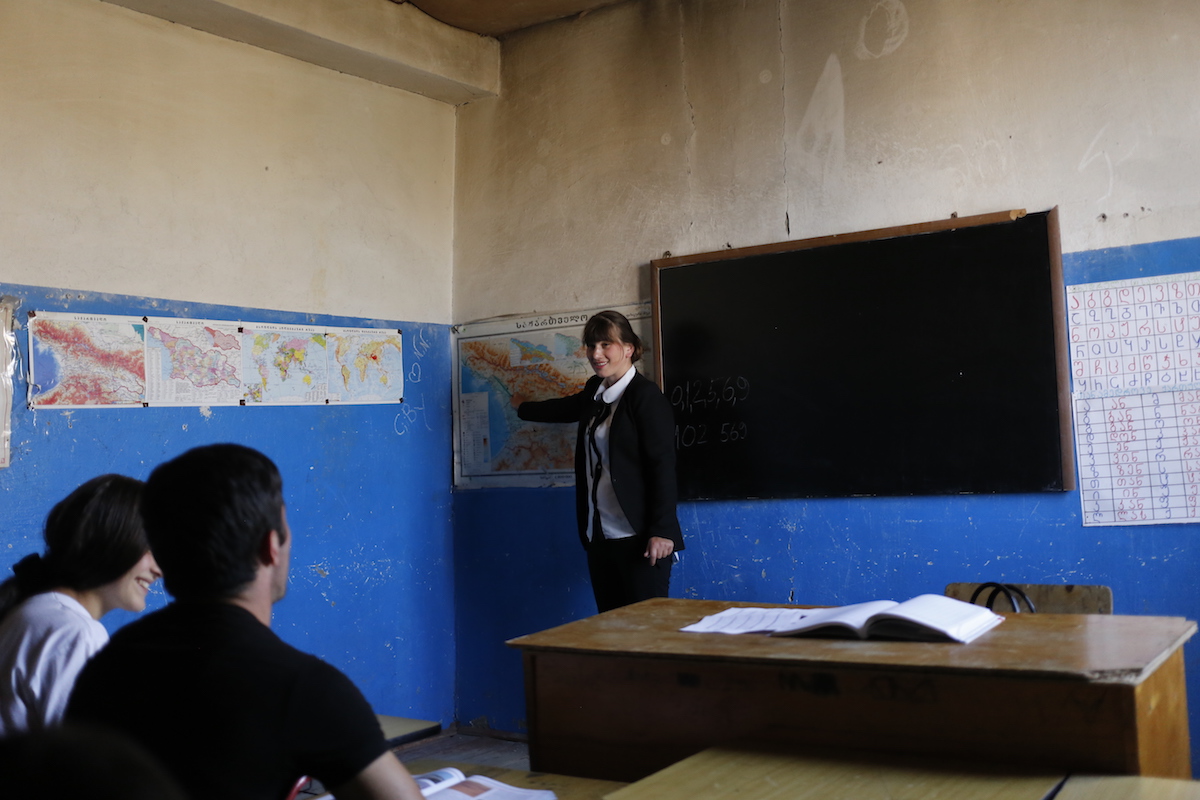
We are trying to produce a variety of honey, of all ecological zones. But Georgian consumers have lost trust in beekeepers. Therefore, we are working hard to convince customers that we are honest producers.”
I was lucky that I had good education. Otherwise I would have stayed at home. There are a number of energetic and smart women in the villages, high up in the mountains but they do not come forward, because they do not know what they can do.
“I started teaching civic education at school on top of geography. I gained a lot of skills through those courses, as it opened up opportunities for a lot of interesting trainings and allowed me to meet new people.
As I was preparing for a presentation for one such meeting, I conducted a study about gender equality in our region. The results were shocking. I decided to become more active and share my story to other women on how I launched the business. Then I learned how to write proposals and I am trying to help others. Recently I took a EU-funded course ‘training of trainers’ and now I can train teachers myself.
Sometimes I am so tired that I think for a moment I have to give up some work. But then I tell myself that I cannot stop. I want to help other women launch their own businesses, to believe in themselves and become role models for their own children, so that they are able to invest in their education.”
Story three: Irina
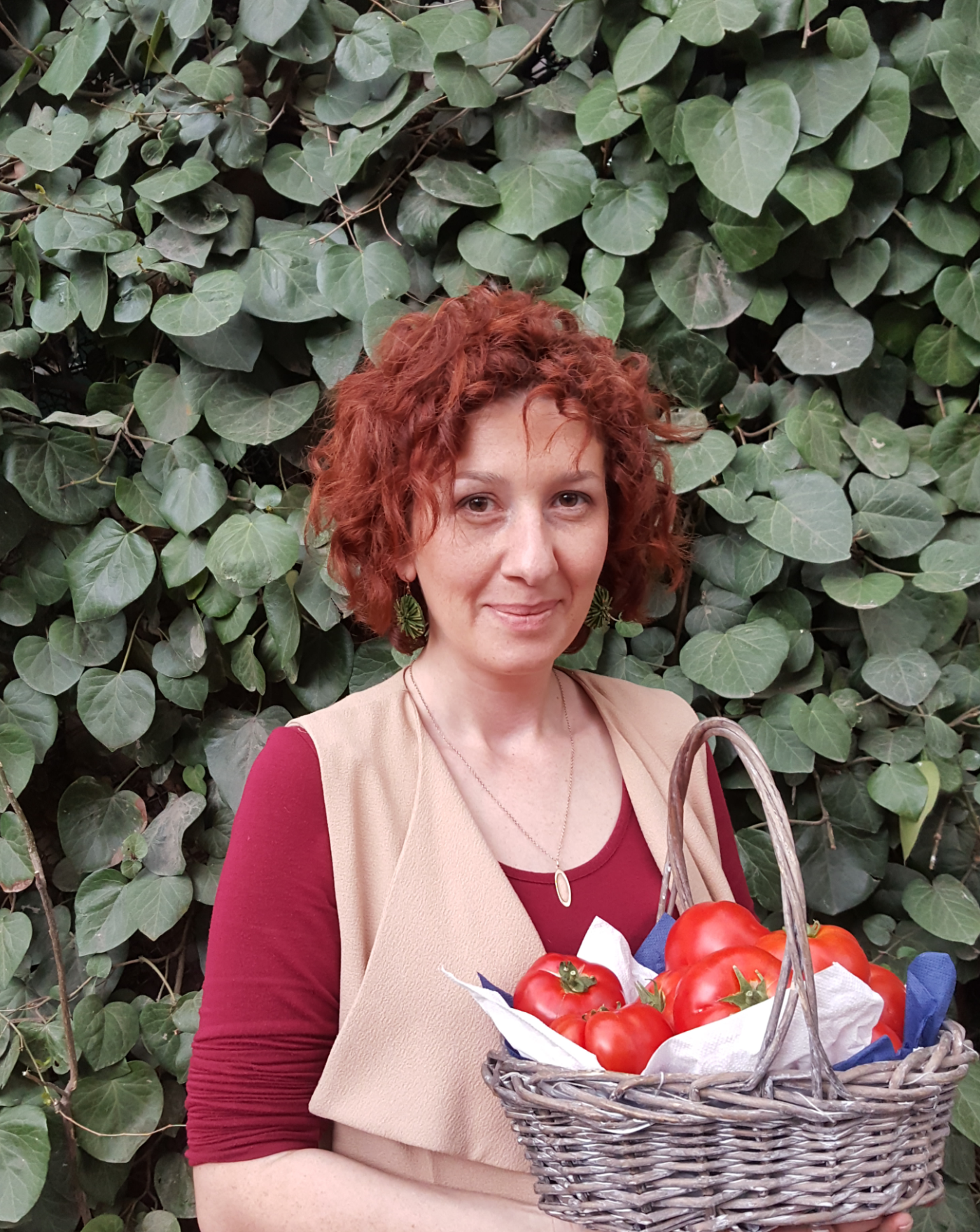
“For the attention of our faithful customers. Upon your request we are publishing a list of places our product is available. Fresh tomatoes from our greenhouse are available at the following addresses…” I found this advertisement from Pomodorna on Facebook.
Pomodorna greenhouse was set up a year ago in Bulachauri, Dusheti. Irina Odisharia, 38, is a lawyer-economist by profession. She studied in Germany and Georgia. When she returned home from Germany she set up an NGO to support ethnic minorities and youth coming from other regions.
“It was interesting work but I wanted to do something else. Once I saw an announcement from Enpard. We started studying the market first, then analysed risks and decided to launch a greenhouse, we applied for funding to the Enpard program and we were successful!
I am a lawyer and I would not imagine that I would have a greenhouse and become a farmer and grow plants with my own hands. I have completely changed my life in one year. I think we should not be afraid of our dreams and talking about them loudly.
Let me share with you a story: after my partner and I married and started living together, we both would be tired after work. But as he would watch TV, I had to go to the kitchen and cook dinner. I had a lot of friends in Germany and some of them even had children and I knew the partners would cook together and share other household chores after work. I realized that I was not OK with that mode of life and told him:
— “I have different expectations. I imagined my family to be different.”
— “And what’s the problem? Let’s work on it,” he responded quietly.
I think this is the main issue of us women. We have expectations and desires that we do not express and do not talk about them loudly. Different expectations often cause frustration and lead to conflicts.
I brought my first harvest to the grocery I would buy food before. Next day they called me and asked for more supplies.
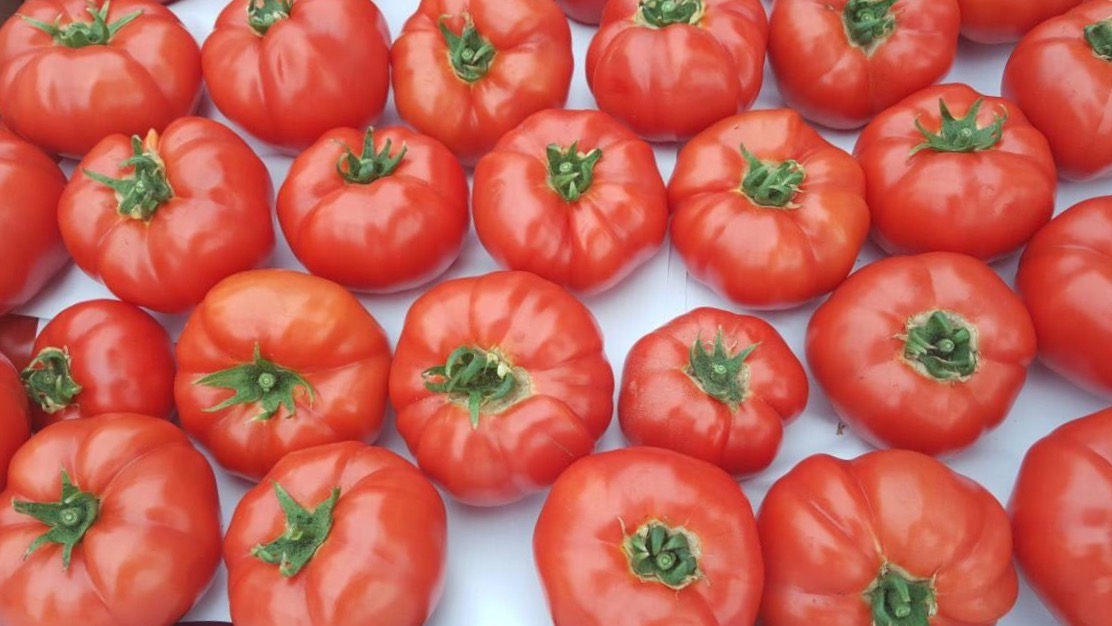


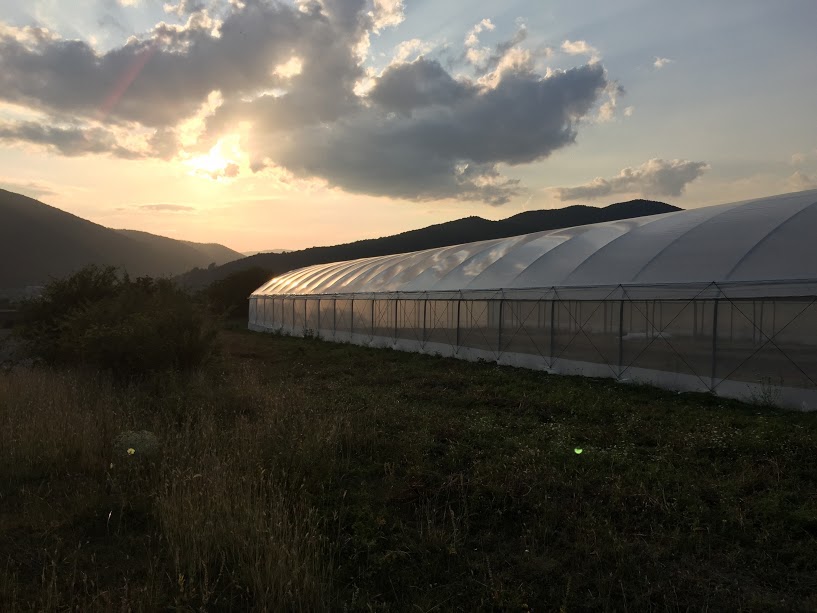
Now we only run one greenhouse and started collecting harvests just recently in the mid of March.
I only worry now that I have little time left for my children. But then I tell myself that this also helps them become more independent. It is not bad when they see their mother constantly learning, going forward and doing the work which she likes.”
Story four: Tiniko, Tiniko, Sopiko, Nino and Dali
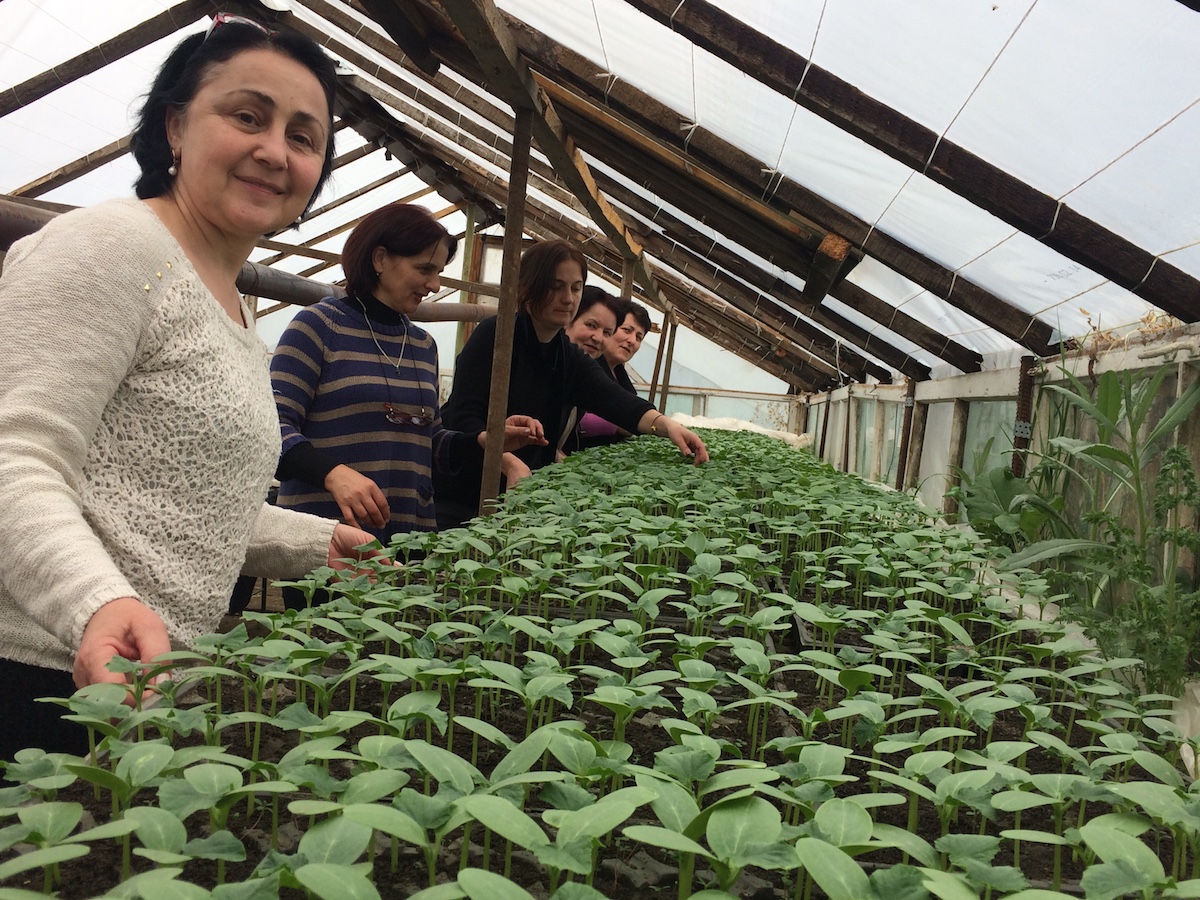
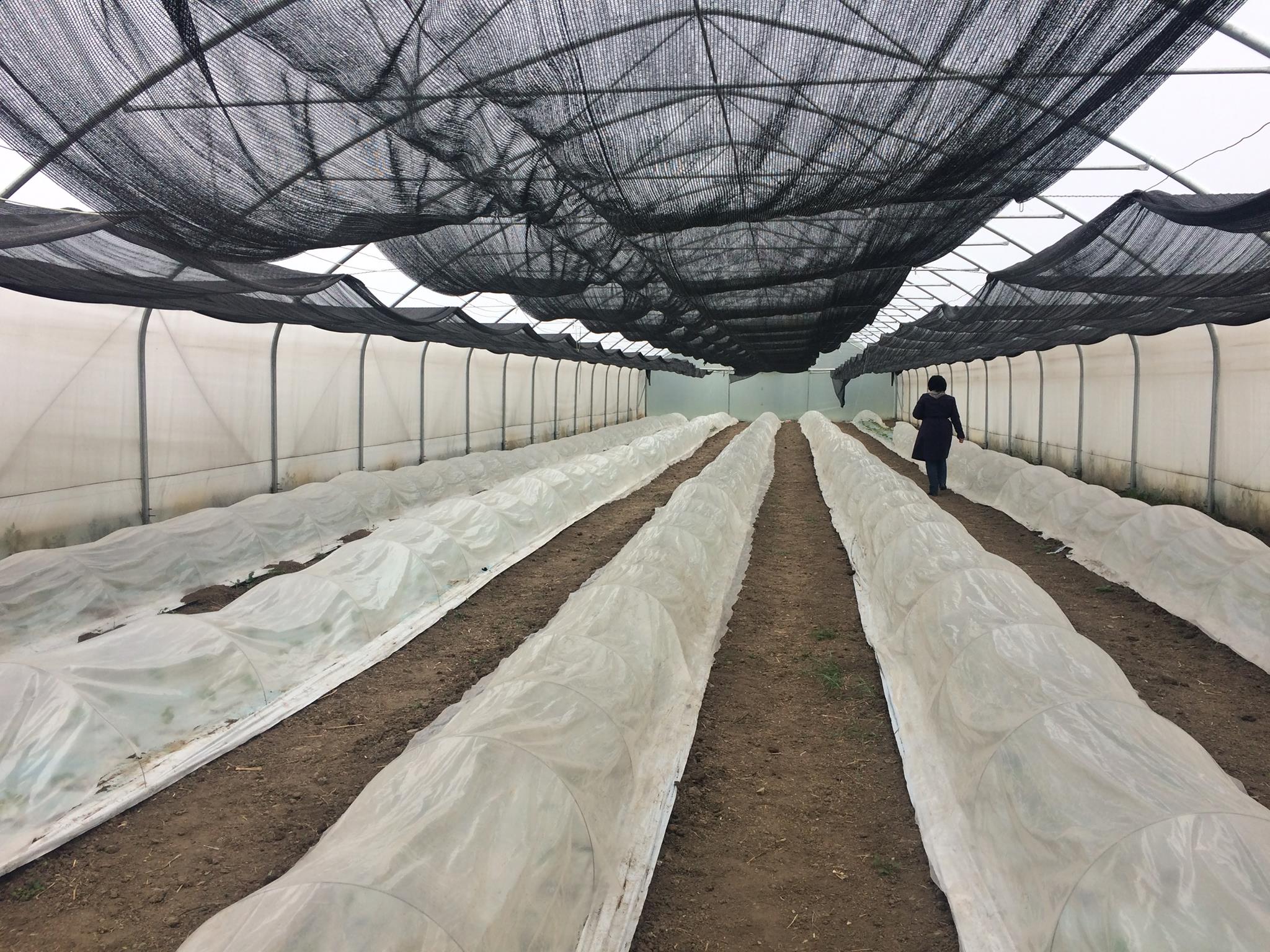
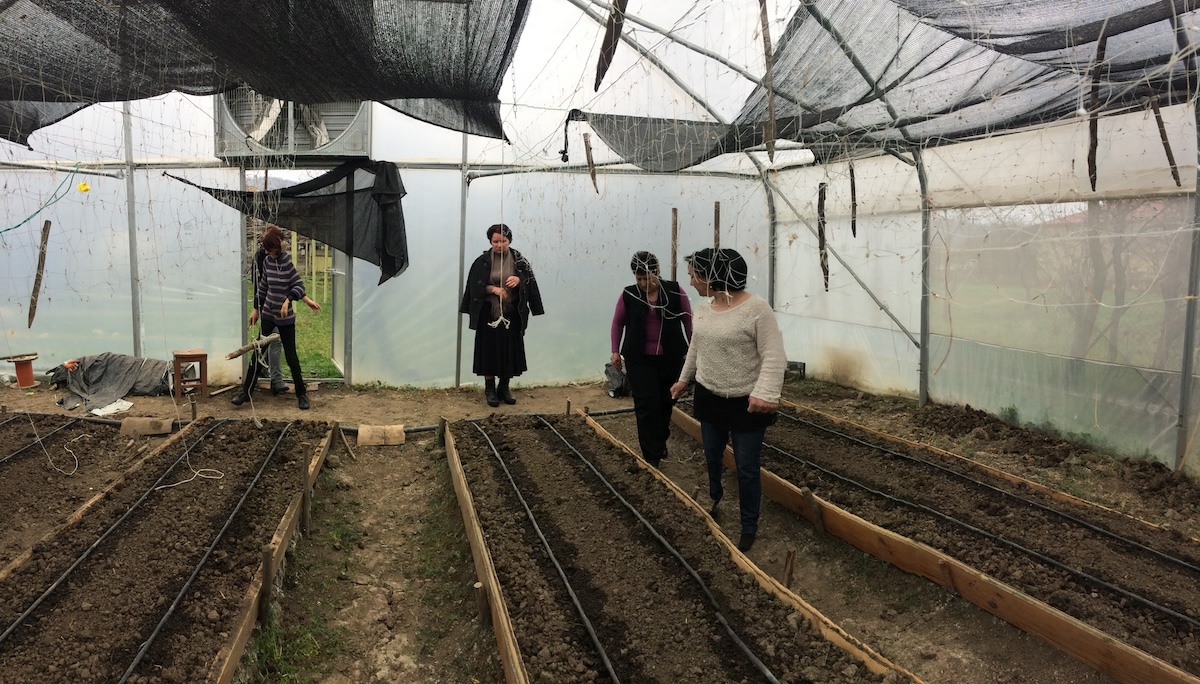
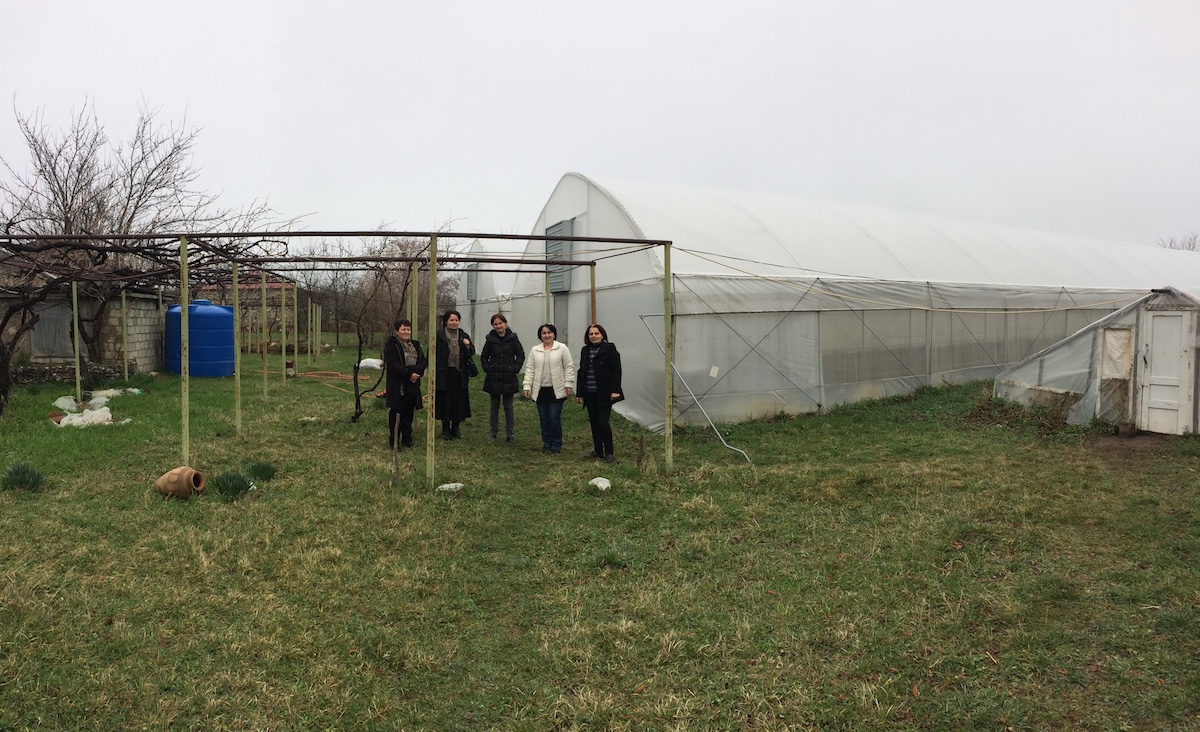
There are five women with their spouses in the cooperative. Sopiko and Tiniko grow amazing tomatos, both in shape and taste. Nino can turn any family work into a business concept, Tiniko is good at sales and Dali, an economist, deals with accounting.
They are all friends and work at school in the village of Upper Alvani. They have been working as teachers for 20-30 years.
“It is bearable to stay inside during classes. But it is so difficult to work confined within four walls, at school during holidays, especially for a person who was born and grew up in a village. You want to be outside, closer with nature, but salaries are low. One day Tiniko saw an ad from Oxfam about available funding for agricultural activities,” says Dali Veshaguridze, 53, farmer.
As to how it started: from 9am to 6pm they were at school, then they did house chores from 6pm to 9pm (dinner, cleaning, washing, tidying up the mess) and then from 9pm till 3-4am working on proposals, and then a call to a husband on duty asking him to give the women a ride.
“We worked for a year and a half and finally we were successful! We won the grant. We built the greenhouse, set up a drip irrigation system and a farm to produce plant seedlings. But we had to find co-funding for the enterprise – GEL 30,000 which was not easy. The banks refused to give us agricultural loans. So, we had to take salary-based loans. Our family members were not supportive. They did not believe in our success at first and people in the village also were skeptical saying we in the team would fight with each other soon and would fail. But our neighbour Otari was encouraging: It is easy to give others advice. But do not listen to others, follow your plans.
Sometimes we would even laugh at it. There is nothing to see in this village and people take selfies in our greenhouse.
We grow tomatos and cucumbers, all organic. We treat plants with Bordeaux mixture and feed plants with nettle solution. We expected 15 tons but grew only four. It is ok. It is organic and is healthy. We sold it in our own and neighbouring villages and there was demand in Tbilisi. But we could not send supplies. The harvest was not enough.
There is a beautiful wooden house, with a fireplace and carved 19th century corners near our greenhouse. We want to buy it and plan different activities, like trainings about organic farming. We would like to share our experience with school and university students and use a few rooms in the house as a guesthouse: when you are tired of the city, you will be able to come and stay, do some farming and rest.
This business does not really need super powers. It does not matter whether you are a mother or a grandmother, what matters is a good idea and several people united around a common goal. The Agency of Cooperatives is standing with us and it is getting easier to fundraise from donors. What else do you need?”










